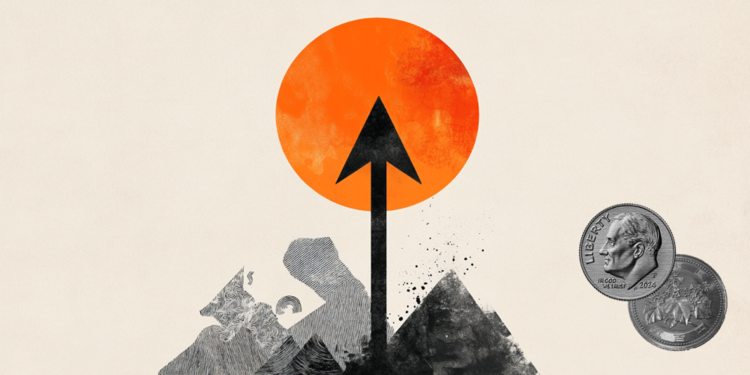Hong Kong will pay US$2,500 (R$12,400) to parents who have a child by 2026, in an attempt to increase the region’s birth rate, but many city residents say the amount barely pays for the rent of a month.
The Chief Executive of Hong Kong, John Lee Ka-chiu , announced the measure on Wednesday (25). He said US$20,000 Hong Kong dollars ($2,556) in aid would be made available to the parents of each baby born between now and 2026, in an effort to boost the city’s “persistently low birth rate”, which has fallen to a record level of 0.9 births per woman, well below the 2.1 needed to ensure a stable population.
“Motherhood is an important life decision that involves many considerations,” Lee said as he revealed a series of economic measures that also included a tax reduction from 15% to 7.5% for residential property purchases.
The aid complements existing tax incentives for new parents, who receive annual tax deductions for each child, with an additional deduction for newborns.
While the aid may seem generous, it falls short of some of the incentives offered in other East Asian countries that also struggle with low birth rates.
Singapore (with a birth rate of 1.05) offers support of US$8,036 (R$40.2 thousand) for the first and second child, and US$9,497 (R$47.5 thousand) for the third, in addition four weeks of paternity leave and 16 weeks of maternity leave, unpaid leave for baby care and tax incentives for working mothers.
South Korea (which has a birth rate of 0.78) currently pays US$518 (R$2,500) per month until the child turns one, and this is expected to rise to R740 (R$ $3,700) next year.
In Japan (with a birth rate of 1.3), parents receive a monthly subsidy of US$107 (R$535) for each newborn up to two years of age. For each child between the age of three and high school, parents receive US$66.7 (R$334) per month.
1 month rent, 3 months childcare
Most parents who spoke to the CNN felt that the new measure would not be enough to encourage them to have more children, pointing out the high cost of living in a city that frequently tops lists of the most expensive places in Asia.
“It’s not enough to cover even a month of my mortgage, plus gas and electricity bills,” he said. Ken Lau father of a child who is thinking about having a second, shortly after the measure was announced.
“How about one donation a year?” said Kristy Chan, mother of one, who said the measure was unlikely to change her mind about having a second child.
According to Midland Realty, a real estate agency in Hong Kong, the average monthly rent for a 46 m², two-bedroom apartment in the city costs around US$2,253 (R$11,200), which would consume more than 90 % of the money that the government will distribute.
With housing prices among the most expensive in the world, high interest rates and rising living expenses on products like baby formula and diapers, many couples feel too overwhelmed to consider having children.
“Anyone who knows how to do math knows that this doesn’t work,” says Lau.
Kim Yeung a full-time mother who decided not to have a second child, said the aid would cover approximately three months of daycare for her 2-year-old son, with an average cost of US$766 (R$3,800).
The best daycares can cost more than double that, he adds. Hong Kong subsidizes education from kindergarten to secondary school, but daycare, a year or two before kindergarten, is typically not covered.
In Hong Kong and other Chinese cities, it is also common to hire a nanny during the first month to prepare meals and do household chores while the mother recovers from childbirth.
Again, government payments wouldn’t go very far. “Hiring a nanny would have already cost US$2,556 (R$12,800),” said Yeung.
See also: Hong Kong will distribute 500,000 free airline tickets to attract tourists
Panorama
The teacher Paul Yip Siu-fai who studies population health at the University of Hong Kong, said a single cash handout would not solve parents’ long-term economic problems.
“Three aspects must be taken into consideration when having a child: childbirth, upbringing and education”, he explained.
In his opinion, Hong Kong needs to do more to help parents in the second two phases, such as offices offering flexible shifts.
“Birth should not just be a matter for the parents. It must be a responsibility shared by society”, he said Yip Sze Lai-shan, deputy director of the Community Organization Society, an NGO that serves some of the city’s poorest people.
According to him, many people on a low income face an impossible choice because they don’t have the money to care for their children, but they also can’t afford to take time off work to care for them.
The Hong Kong government also committed to accelerating access for families with children to public housing and increasing the capacity of public childcare services, although Sze said this was not enough.
She called on the Government to provide housing assistance and childcare subsidies to make childcare services more affordable. Lau, a father of one, agreed and urged the Government to also extend paternity and maternity leave.
“Those who want to give birth don’t do it for 20 thousand Hong Kong dollars. And those who consider economic conditions an obstacle will not change their minds just for 20 thousand Hong Kong dollars,” she says.
“The government should think about how to convince us that Hong Kong is conducive to raising children,” Lau said.
Source: CNN Brasil
Bruce Belcher is a seasoned author with over 5 years of experience in world news. He writes for online news websites and provides in-depth analysis on the world stock market. Bruce is known for his insightful perspectives and commitment to keeping the public informed.







